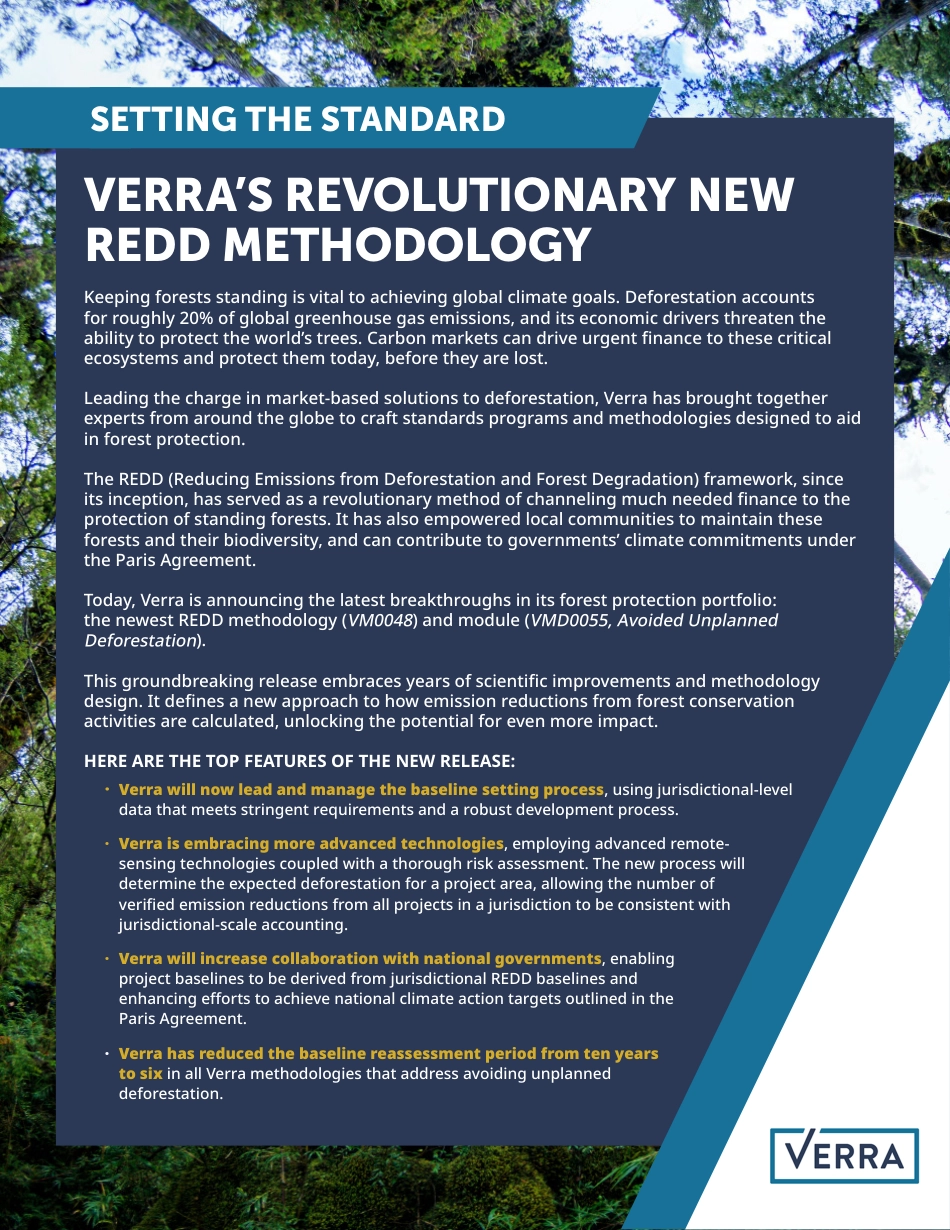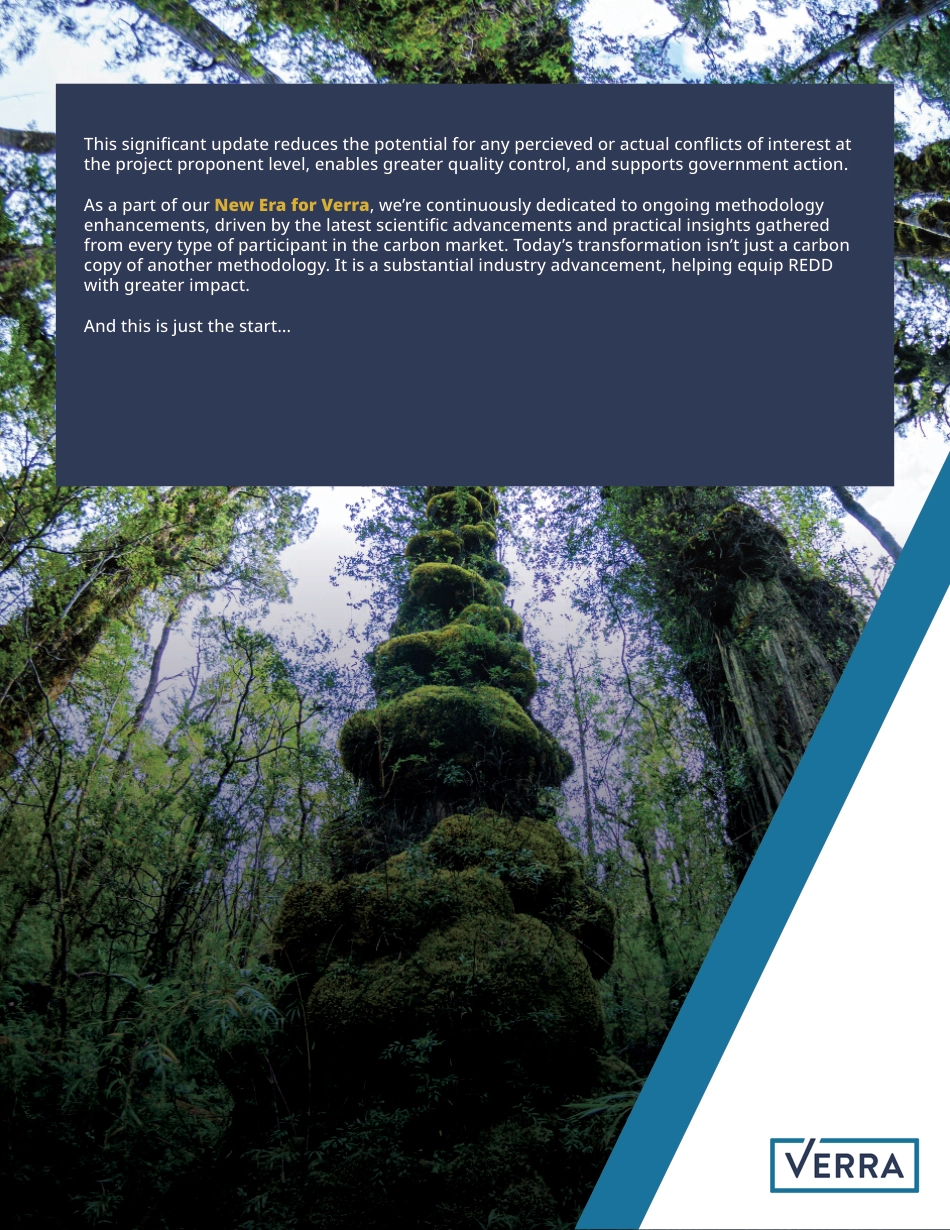SETTING THE STANDARDVERRA’S REVOLUTIONARY NEW REDD METHODOLOGYKeeping forests standing is vital to achieving global climate goals. Deforestation accounts for roughly 20% of global greenhouse gas emissions, and its economic drivers threaten the ability to protect the world’s trees. Carbon markets can drive urgent finance to these critical ecosystems and protect them today, before they are lost. Leading the charge in market-based solutions to deforestation, Verra has brought together experts from around the globe to craft standards programs and methodologies designed to aid in forest protection. The REDD (Reducing Emissions from Deforestation and Forest Degradation) framework, since its inception, has served as a revolutionary method of channeling much needed finance to the protection of standing forests. It has also empowered local communities to maintain these forests and their biodiversity, and can contribute to governments’ climate commitments under the Paris Agreement. Today, Verra is announcing the latest breakthroughs in its forest protection portfolio: the newest REDD methodology (VM0048) and module (VMD0055, Avoided Unplanned Deforestation). This groundbreaking release embraces years of scientific improvements and methodology design. It defines a new approach to how emission reductions from forest conservation activities are calculated, unlocking the potential for even more impact. HERE ARE THE TOP FEATURES OF THE NEW RELEASE: · Verra will now lead and manage the baseline setting process, using jurisdictional-level data that meets stringent requirements and a robust development process. · Verra is embracing more advanced technologies, employing advanced remote-sensing technologies coupled with a thorough risk assessment. The new process will determine the expected deforestation for a project area, allowing the number of verified emission reductions from all projects in a jurisdiction to be consistent with jurisdictional-scale accounting. · Verra will increase collaboration with national governments, enabling project baselines to be derived from jurisdictional REDD baselines and enhancing efforts to achieve national climate action targets outlined in the Paris Agreement. · Verra has reduced the baseline reassessment period from ten years to six in all Verra methodologies that address avoiding unplanned deforestation.This significant update reduces the potential for any percieved or actual conflicts of interest at the project proponent level, enables greater quality control, and supports government action. As a part of our New Era for Verra, we’re continuously dedicated to ongoing methodology enhancements, driven by the latest scientific advancements and practical insights gathered from every type of participant in the carbon market. Today’s transformation isn’t just a carbon copy of another methodology. It is a substantial industry advancement, helping equip REDD with greater impact.And this is just the start…


